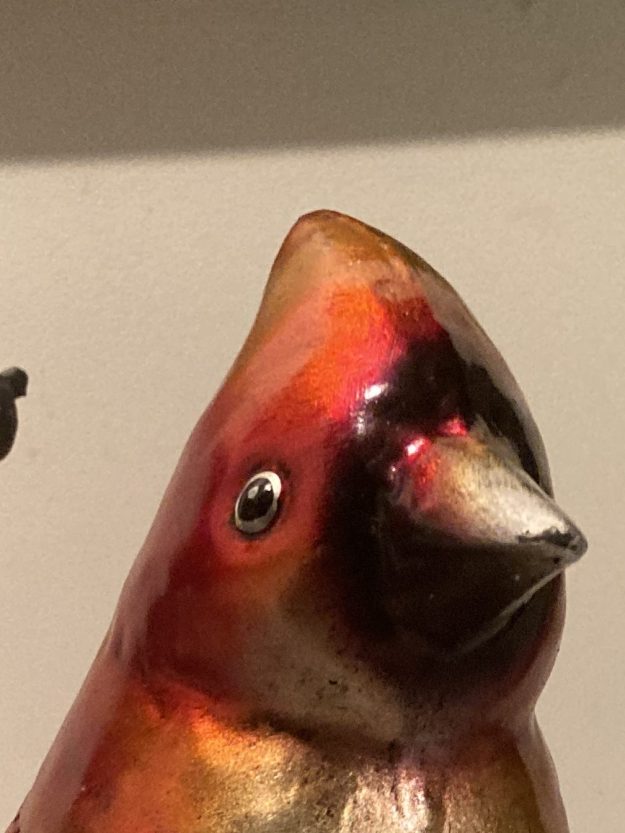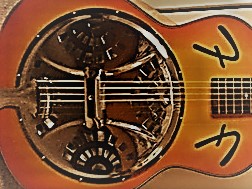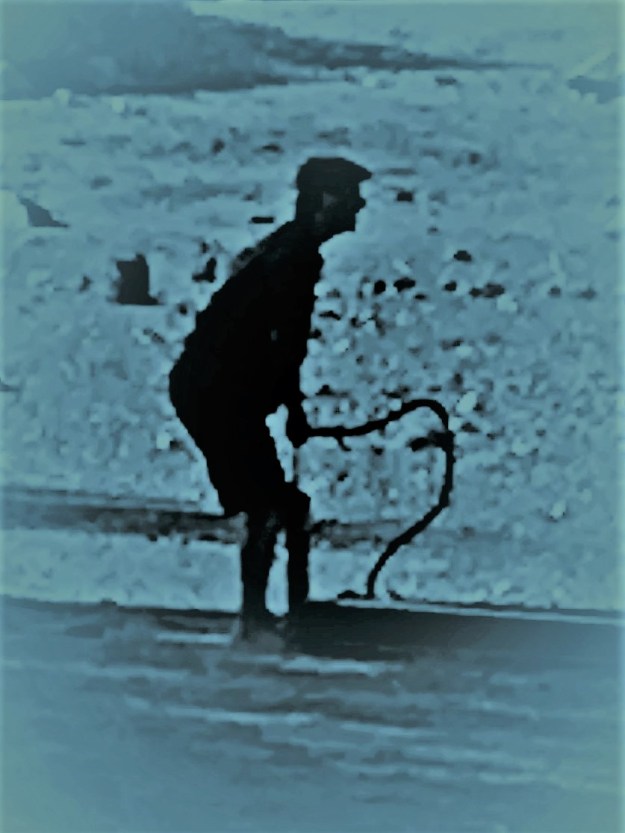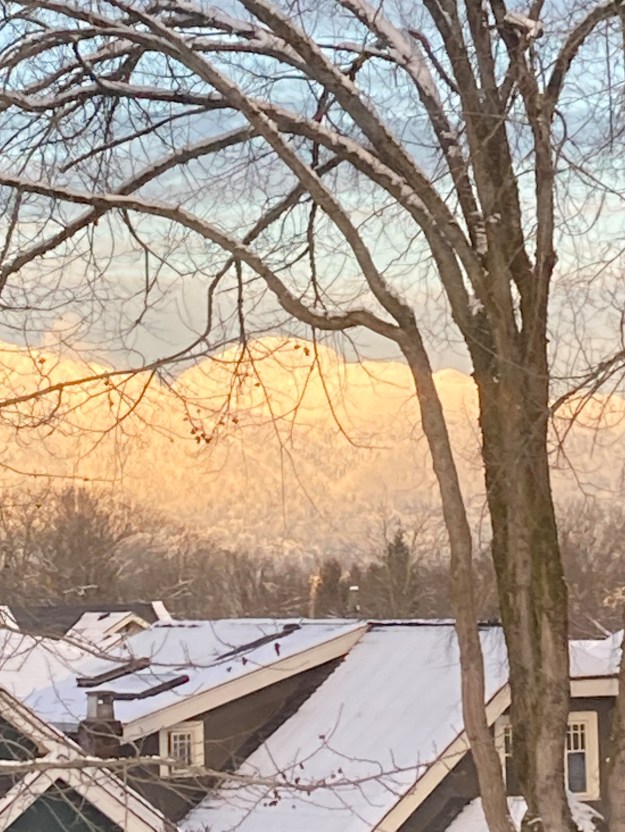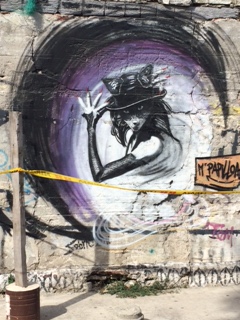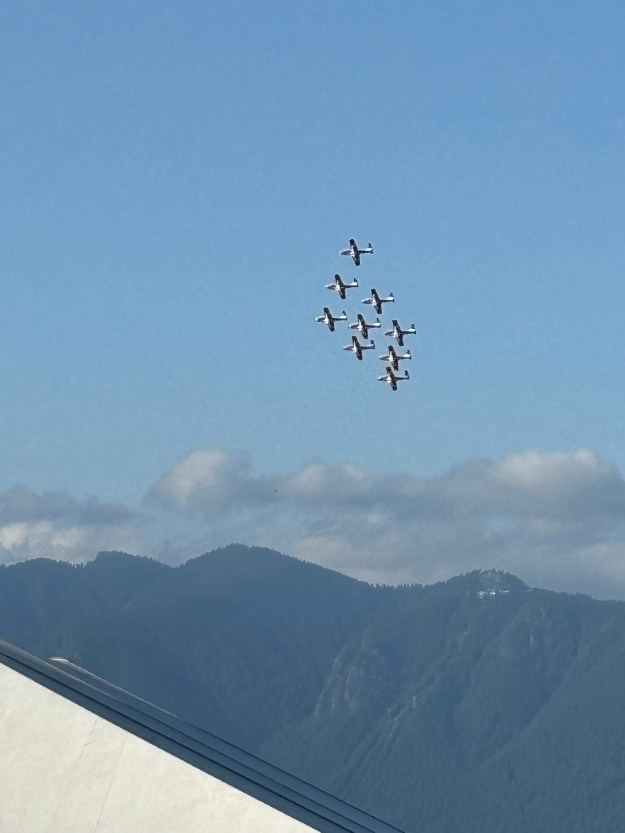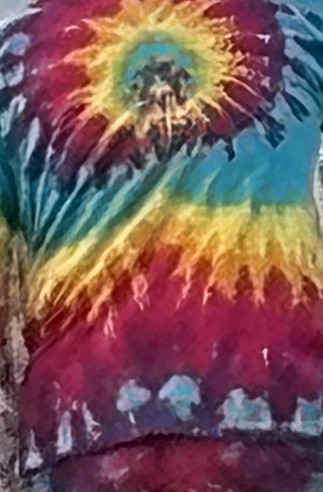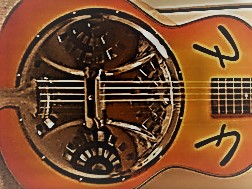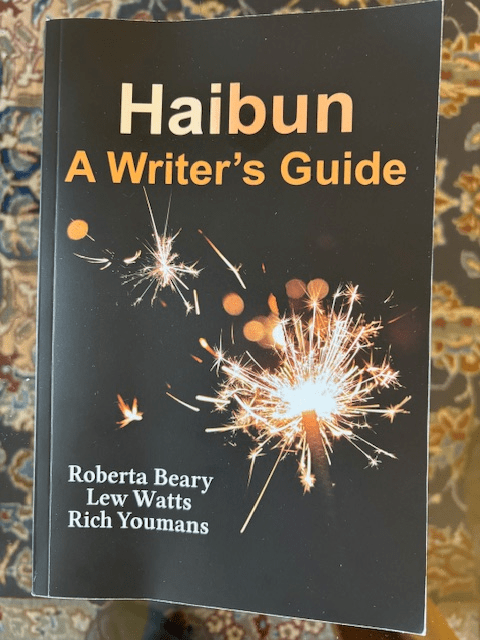
In Rattle Magazine Issue 87, Lew Watts, the Welsh Poet, was interviewed by the editor, Timothy Green. It is a fascinating, wide-ranging and entertaining interview about all things ‘haibun’ and during the interview, this book was mentioned.
A confession. I’ve been mispronouncing ‘haibun’ for some time. Even now when I see the word on paper, ‘halibun’ pops into my head. I even cracked jokes involving ‘halibun and chips’. But back to the book.
This book is essential reading for anyone interesting in reading and writing haibun. It is accessible, entertaining and breaks down the essential ingredients that go into a haibun. That is no mean feat, because, like the haiku there is an ineffable quality to the haibun.
arcane moon
po-faced
fades to morning
Okay, pump the brakes. A good haiku makes or breaks the haibun. The other ingredients…title, and prose complete the trinity. What this book does well, through several fascinating examples, is explain how these three ingredients spark off each other and cause the reader to revisit the haibun again and again.
So go out and buy this book, you won’t regret it!
